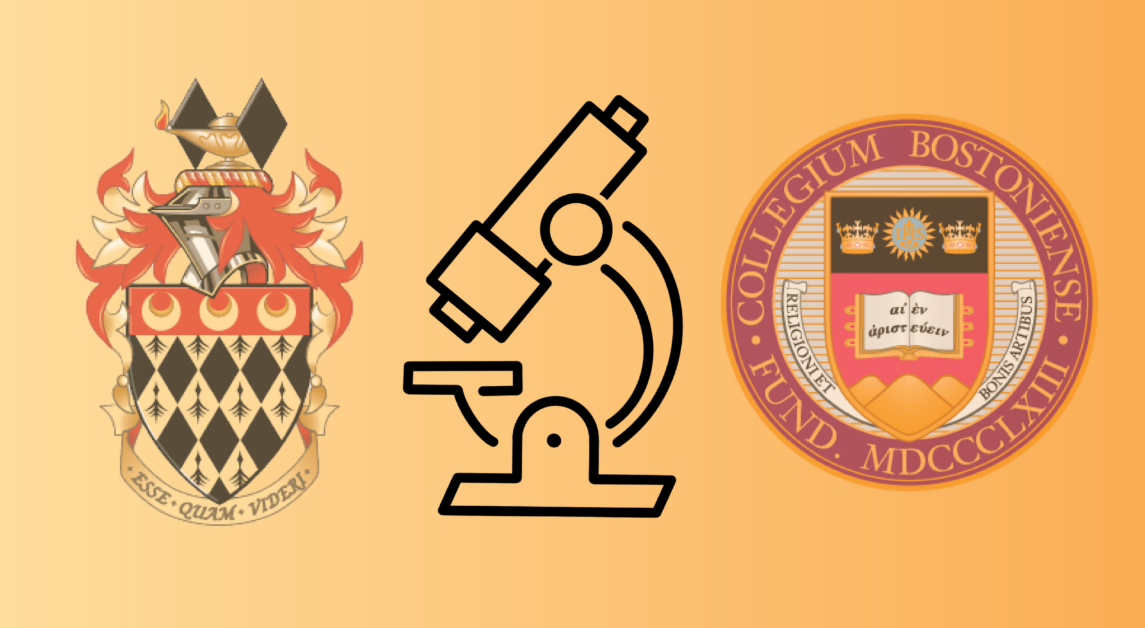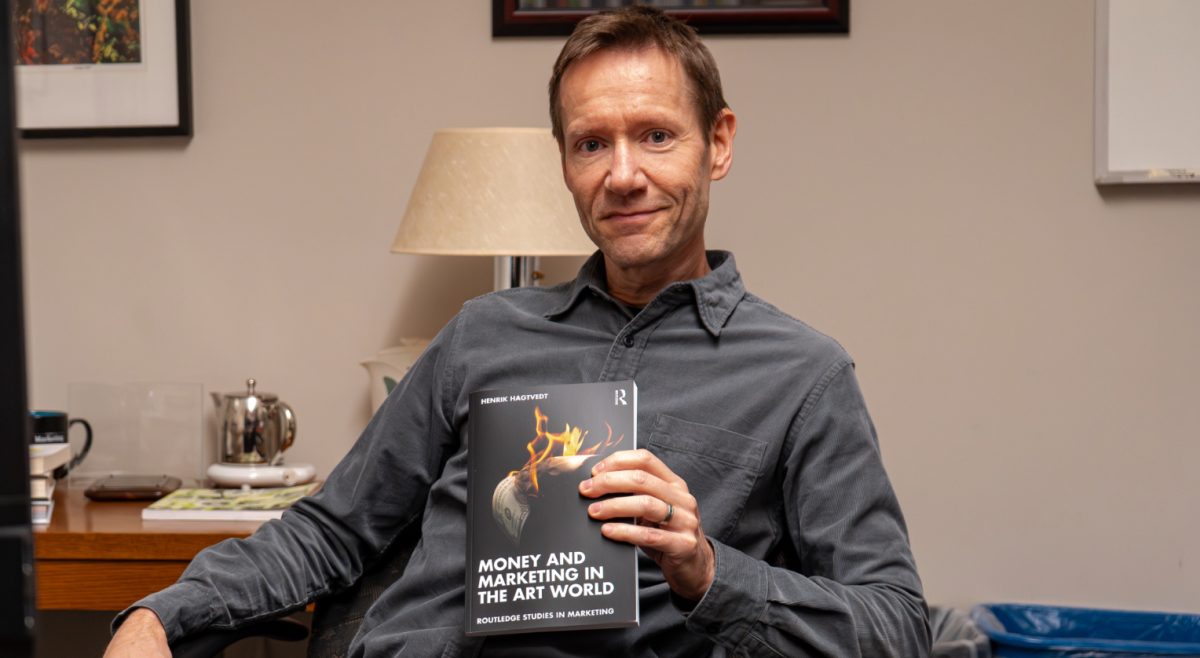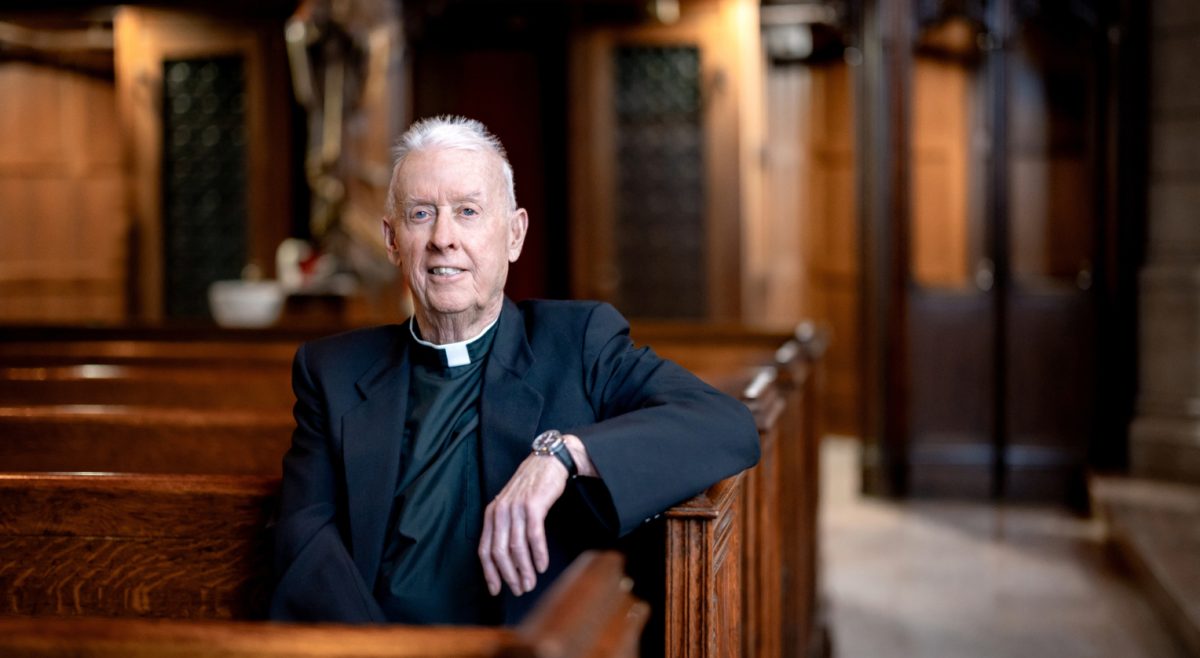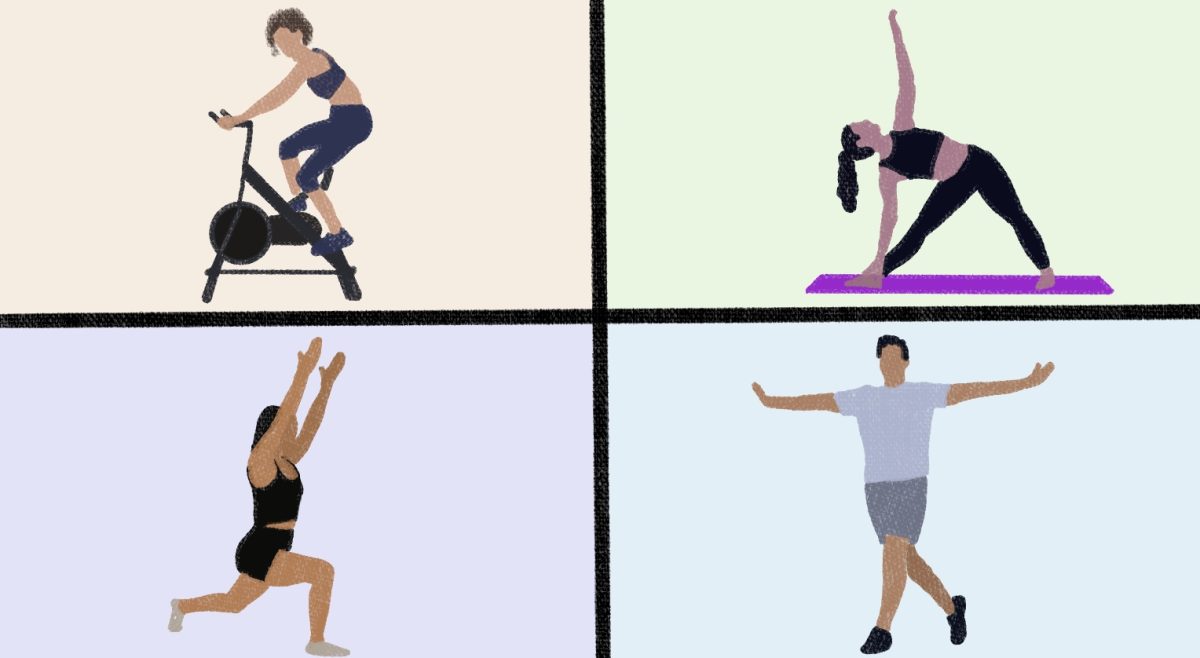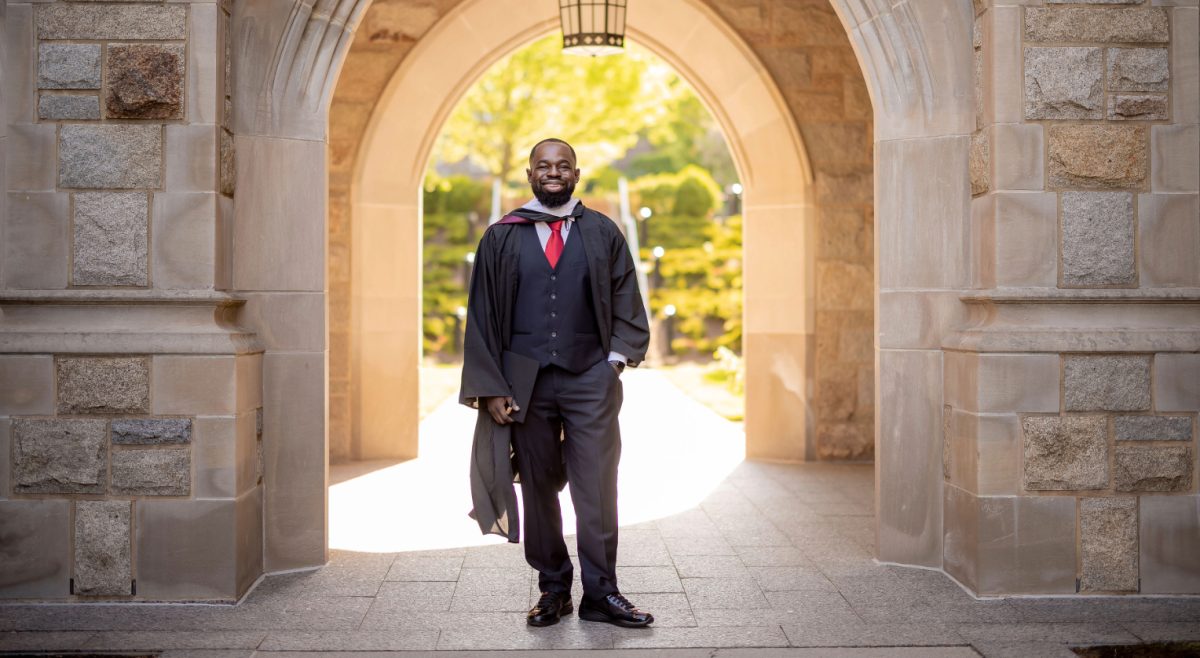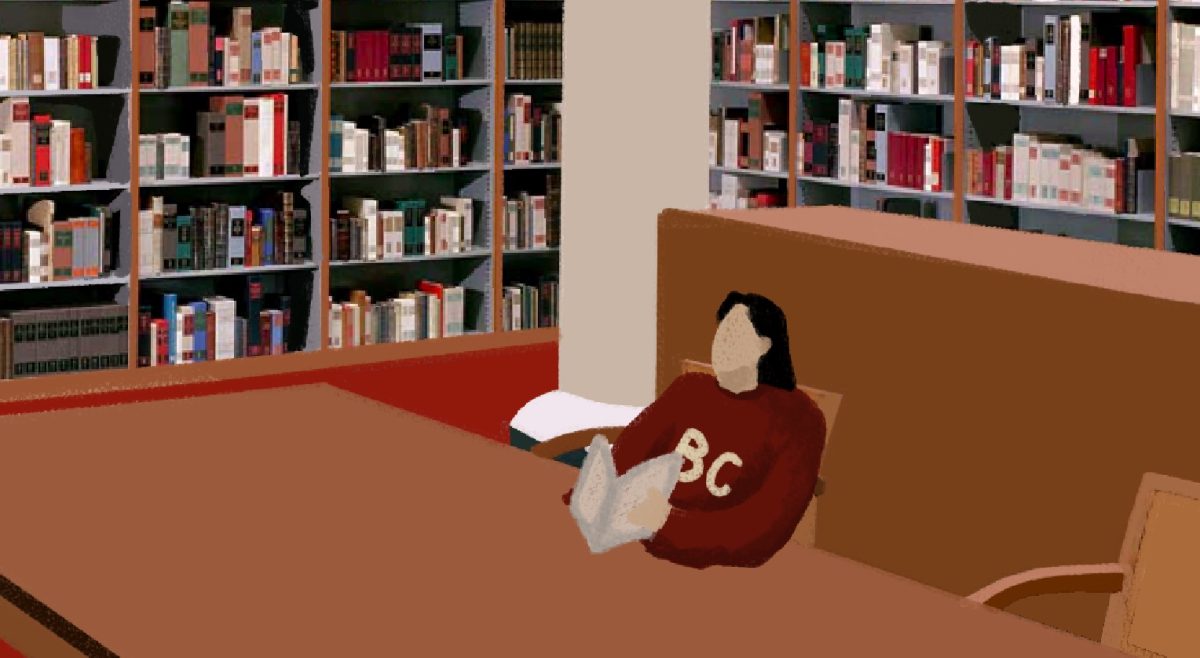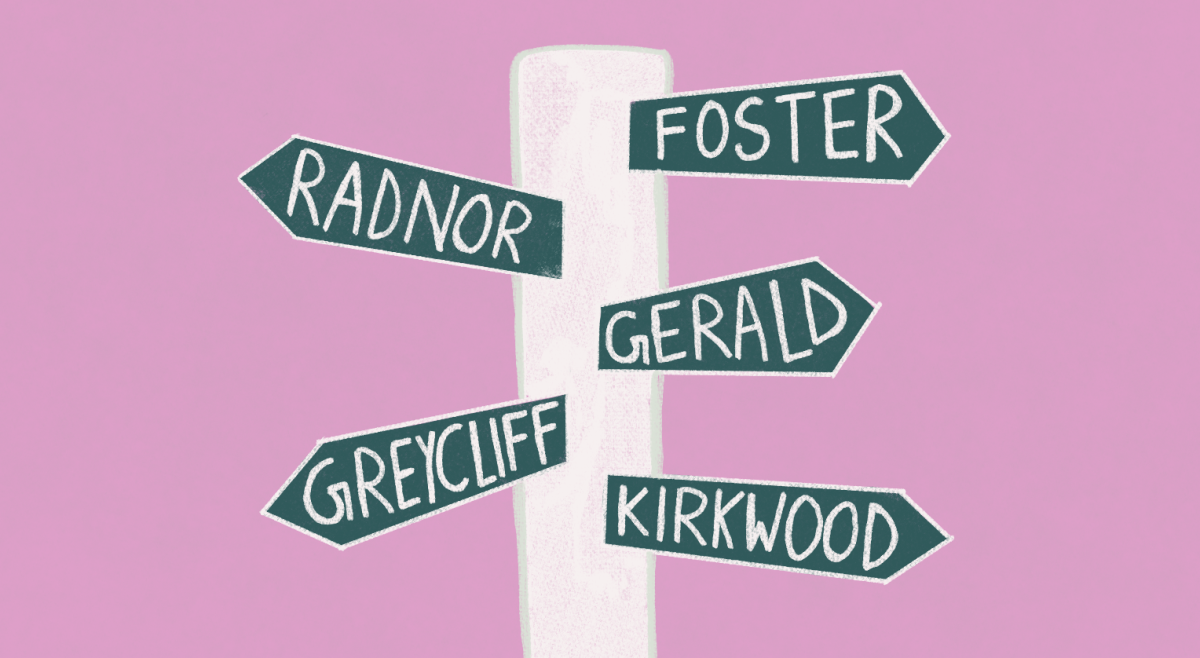Going to college is an adjustment for anyone—it brings a new level of independence—but going to college in another country is just as scary as it sounds. This year, I have had the amazing opportunity to take a year out of my studies at Royal Holloway at the University of London and study here at Boston College. Through sharing my experiences during my year abroad, I am hoping to not only help other international students feel less like they have to do this on their own—we all feel overwhelmed—but also to help BC students understand how unique their experience is.
To someone who has grown up in the United States, the similarities between colleges here and universities abroad probably seem plentiful. Yet, after being at BC for about two months, I’ve quickly realized that the similarities between BC and my school don’t go far past the shared language, and even having a straightforward conversation can be hit or miss. There have been many hurdles to jump through, but at the end of the day, being totally immersed in a new college environment has been a huge learning experience. By sharing what I’ve learned about BC’s academic system, I hope to offer both exchange students and those who have spent all four years at BC a new perspective on their school.
First off, at university in the United States, you can start as an undeclared major. This gives you time to take a whole range of classes and figure out what interests you enough to centre your education on. This is not the case in the United Kingdom, as we have to choose our university based on the courses they offer for our degree programme, and every time you write a statement for that university, it has to be specific to the courses you want to take. As a history and politics student, I have spent the last two years at my university only taking courses in these subjects. There are many advantages to BC’s flexibility, so my advice if you are an international student is to do something that you enjoy—a hobby almost, but make it educational. For me, that was taking a course on Greek mythology and a journalism class, something that I have not experienced before and would not be able to at home. For non-exchange students, remembering that the opportunity to take a range of classes is unique can also help push you to branch out of the curriculum for your major.
Secondly, participation. In the five classes I take, four of them have graded participation. For me, the idea of participating in class is terrifying. Saying something wrong and having everyone stare at me? No thanks! But participation is crucial, and luckily at BC, raising your hand is usually on your own terms. Everyone has a different level of comfort with participating, but the fact is that here, you have to do it. So, as terrifying as it is, just do it. I don’t have much greater advice than that, but reminding yourself that the professor and other classmates want to hear what you have to say can help. Even if you do it in a small way, such as just answering a yes or no question, raising your hand gets your voice out there. When I return to Royal Holloway, I know that I will not be the keen, eager student who is always volunteering to speak, but the way this one year is pushing me out of my comfort zone will definitely have some lasting impacts.
Thirdly, the assessment methods. The grading system is also different. As previously stated, there is a lot of emphasis on participation, but more than that, there are small, weekly, time-consuming tasks to complete that add up to the final grade. In my experience so far, these have been small things like posting weekly chats on Canvas, putting dates and places on maps, or creating a video. Putting in a lot of time and effort for something worth 5 percent of my grade has been a huge adjustment—at home, I was used to putting in the same effort for something that would be worth 30 percent. In the UK, my only assessed work for each class was two essays and then one exam at the end of the year. This does make it easier to focus on studying for these large assessments without having to think about the next small thing on my to-do list. But, with only three opportunities to show what you are capable of, this method does not allow for much failure. Although the system here in the U.S. has kept me feeling constantly busy, it also accounts for not every single piece of work being at the same standard. I’ve had to learn to manage my time by working out how many pages a day I need to read, marking which work is urgent, and keeping a spreadsheet of all my due dates until the end of term. Just doing small things like this has helped me feel as if I have some sort of control over my workload.
Fourth, the professors. BC’s emphasis on participation means that most classes require more interaction between the professor and the students, creating a different sort of relationship compared to university in England. Here, my professors have really emphasized the importance of communication. My professors have also made the effort to get to know my name—it’s something small, but it goes a long way. During one of my years at university, I think only one out of four of my professors knew my name. This standard has made it easier to ask for help and advice, since there is a feeling that those who actually know your name want you to do your best rather than see you as a grade.
It has been really interesting learning about the American-British relationship and history from an American point of view. Beyond academics, the cultural and social norms differ, meaning that settling in takes a lot longer than you expect. Despite it being scary, being at BC is definitely something I will miss when it’s over.
I hope these academic tips are somewhat useful. Although the universities are not the same, these differences are a good thing. Adjusting to these new experiences has definitely made me a better and more well-rounded student. For both those who are exchange students like myself and those who are not, learning to embrace new experiences becomes a lot easier when you remember that there are many others who feel the same way.
Featured Graphic by Olivia Charbonneau / Heights Editor

